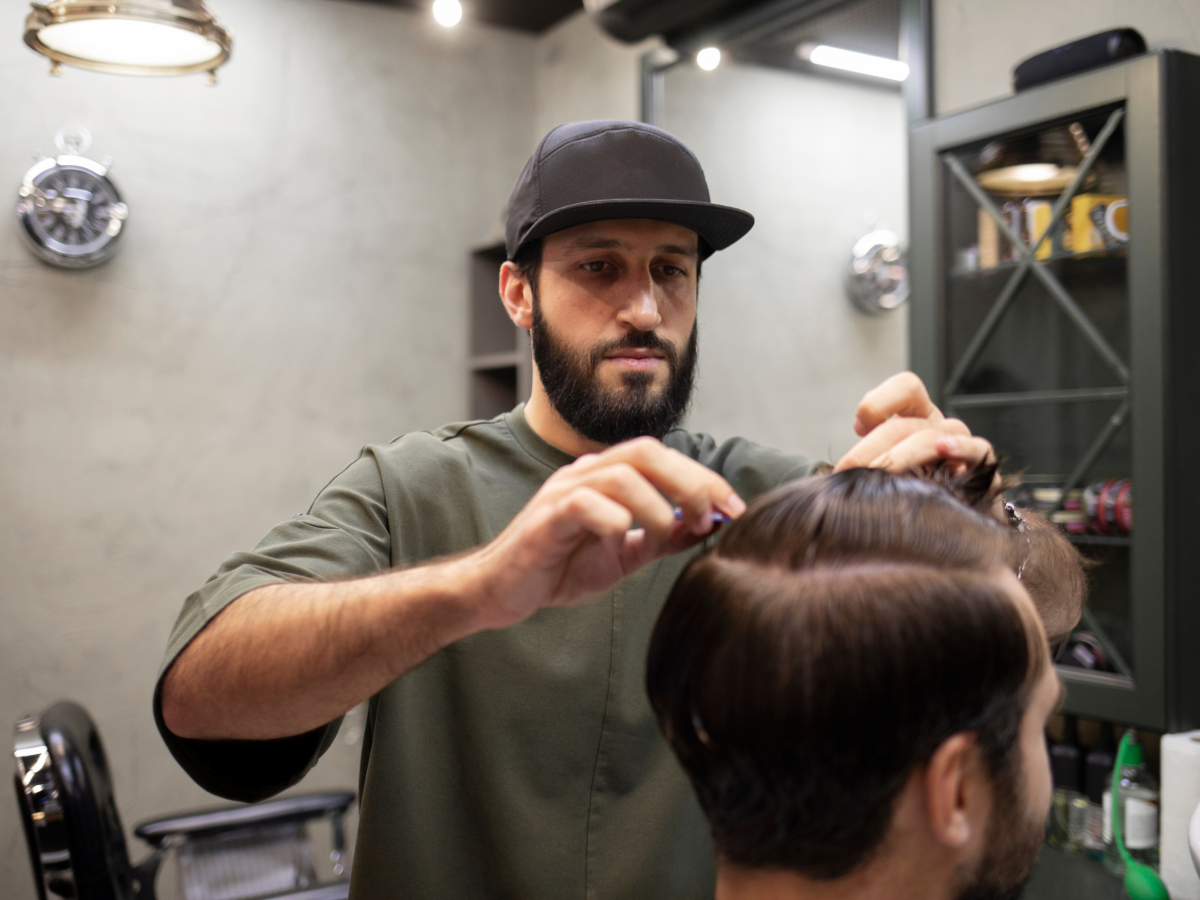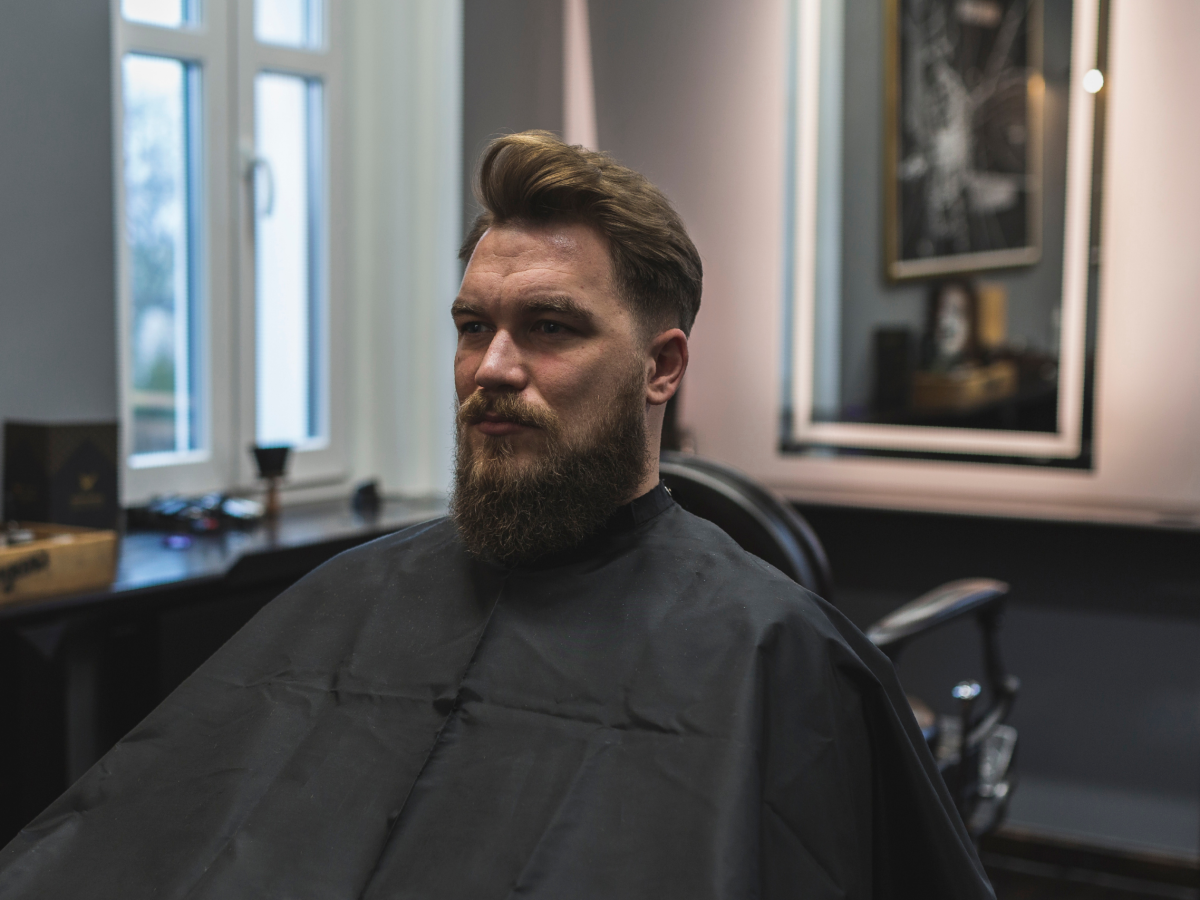
The undercut haircut is bold, stylish, and versatile—but what happens when you decide it’s time for a change? Whether you’re moving toward a longer hairstyle or simply want to blend out the sharp contrast, growing out an undercut can be tricky. Many men face the dreaded “awkward stages” where hair lengths clash, sides look unruly, and styling becomes a daily struggle.
But don’t worry—it doesn’t have to be a messy process. With the right strategy, grooming routine, and patience, you can grow out your undercut without looking like a work in progress. In this blog, we’ll walk you through how to grow out an undercut without awkward stages, offering tips, timelines, and style hacks to help you transition smoothly.
1. Understand What Makes an Undercut Difficult to Grow Out
Before diving into the solution, it’s important to understand why undercuts are hard to grow out. The defining feature of an undercut is the stark contrast between the long top and the very short (or even shaved) sides. As the short sides begin to grow, they don’t blend naturally with the longer top, creating a disconnected and uneven appearance.
That imbalance is what leads to awkward stages—but with some careful planning, you can manage the transition more smoothly.
2. Trim Strategically Instead of Letting It All Grow
One of the biggest mistakes men make when growing out an undercut is not cutting their hair at all. While it might seem counterintuitive, regular trims are crucial.
Here’s how to trim smartly:
- Blend the sides gradually: Ask your barber to start tapering the sides instead of keeping the hard disconnect. A gradual fade or taper helps the lengths start blending naturally.
- Shape the neckline and around the ears: Keeping these areas tidy prevents you from looking unkempt as everything grows out.
- Let the top grow last: Focus on getting the sides to catch up to the top before trimming the crown or fringe.
3. Choose Transition Hairstyles
Growing out an undercut doesn’t mean you have to look like a mop. There are plenty of intermediate hairstyles that help bridge the gap while maintaining style.
Good transition styles include:
- Taper fade with longer top: A softer, more modern look that tones down the contrast.
- Textured crop: This helps blend varying lengths and adds style during the mid-growth phase.
- Bro flow or slick-back: As the top and sides reach a medium length, styles that push the hair back can offer a polished look without requiring perfect blending.
4. Use the Right Styling Products
As your hair grows, managing different lengths becomes harder. The right products can help control flyaways, add texture, and create the illusion of a more unified haircut.
Recommended styling products:
- Matte clay or paste: Great for medium-length hair and creating hold without shine.
- Texturizing spray: Helps add volume and shape to uneven layers.
- Leave-in conditioner: Keeps hair soft and manageable as it grows.
Pro tip: Avoid greasy pomades during the grow-out stage—they can make uneven lengths look heavier or draw attention to asymmetry.
5. Embrace Regular Barber Visits
You might think growing out your hair means skipping the barbershop, but regular check-ins are essential. A skilled barber can help:
- Even out lengths gradually
- Recommend new styles for each growth phase
- Keep your look intentional, not accidental
Aim for a visit every 4–6 weeks, even if it’s just for shaping or tidying up.
6. Be Patient and Consistent
Let’s be honest: growing out an undercut will take several months, depending on your hair length goals. On average, men’s hair grows about half an inch per month. That means going from a buzzed side to medium length could take 4–6 months.
What helps?
- Set realistic expectations
- Take progress photos to stay motivated
- Focus on your end goal and trust the process
Final Thoughts: Style the Journey, Not Just the Destination
Growing out an undercut doesn’t have to be a style sacrifice. With a solid plan, regular trims, and thoughtful styling, you can transition from an undercut to a longer, more versatile haircut without ever hitting a truly awkward phase.
The key is control—don’t just “let it grow.” Shape it, style it, and stay on top of maintenance. In a few months, you’ll be rocking a fresh new look and wondering why you ever worried.


